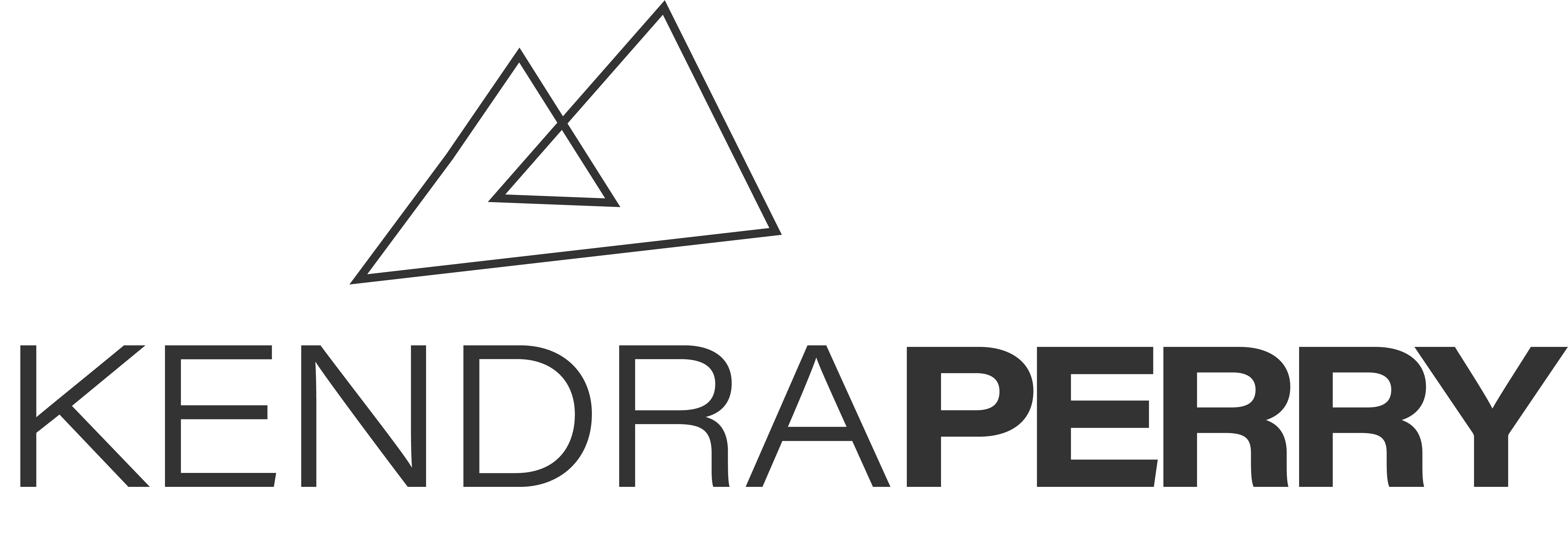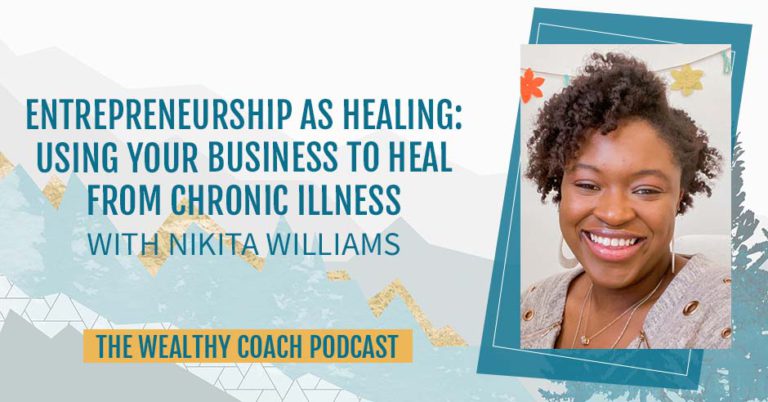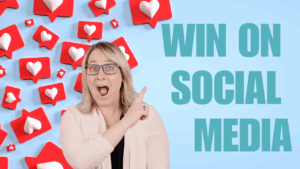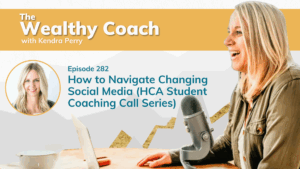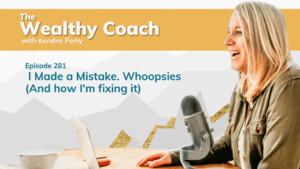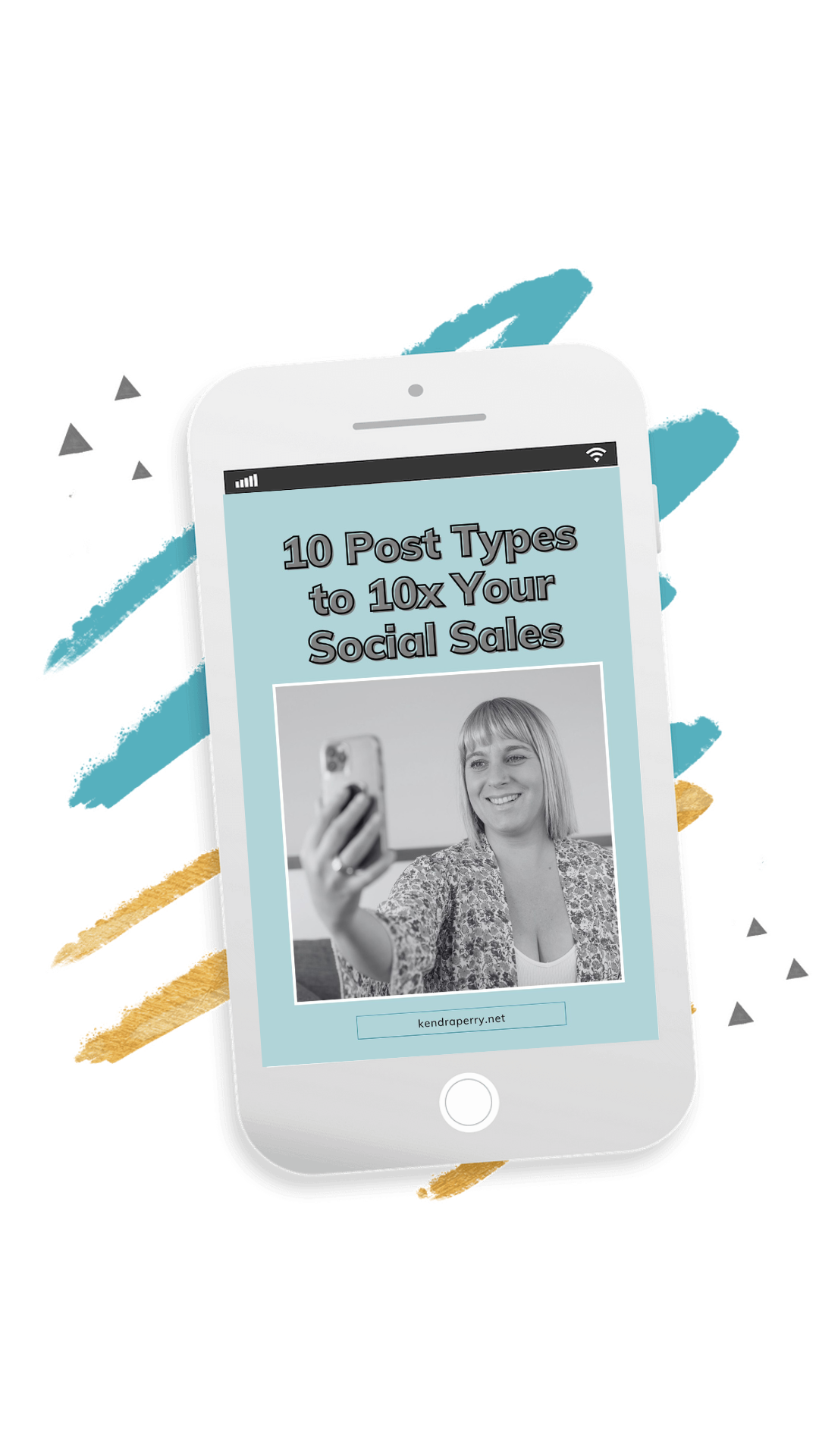A chronic illness is very complicated and would last several months or years. These illnesses could present a huge problem to people, especially those who are working professionals. Host Kendra Perry thinks entrepreneurship is a powerful tool for healing since she experienced it herself that healed her body. In today’s episode, award-winning mindset coach and podcast host Nikita Williams sits down with Kendra to talk about her business that also heals her from a chronic illness while helping other business owners with the same situation as her build their businesses. You do not want to miss this episode of, The Wealthy Coach.
—
Listen to the podcast here
Entrepreneurship As Healing: Using Your Business to Heal From Chronic Illness With Nikita Williams
I have an amazing interview for you. It might be one of the most powerful and favorite conversations I’ve had on the show. I’ve said that before but I mean it this time. I sat down with Nikita Williams. We had a powerful conversation about building a business with chronic illness. As you probably know, if you aren’t new here, I had a chronic illness. I had chronic fatigue for years. It’s something that I only started to heal from. In the past few years, I started to get my energy back.
When I was in the depths of this health crisis, I started a business and grew a highly successful business with a chronic health problem. A big question I get from a lot of my audience is, “How do you start a business when you were still struggling with your health and still have all these health issues?” We’re going to talk about it a little bit in the interview. Entrepreneurship is a powerful tool for healing. I healed my body while I built my business. I couldn’t have done it if I had an employer.
In this episode, there is Nikita, who is someone who has chronic illnesses and helps business owners with chronic illnesses build their businesses. We are going to sit down and have an interesting conversation that you will feel quite inspired by. Here’s a little bit more about Nikita. She is a certified essential oil specialist, mindset business coach, and the host of the podcast She’s Crafted to Thrive. She has been featured on Rising Tide, The Jasmine Star Show, and The Simplifiers Podcast.
She was diagnosed with endometriosis in 2009 and fibromyalgia in 2010. These diagnoses inspired her to use her curated experience in photography, real estate, and community event planning to jumpstart her career online as a digital marketer. She learned that having a chronic illness did not limit her potential. It helped her see the possibilities for herself and her clients.
Her coaching method incorporates psycho-aromatherapy, EFT, creativity, and business strategies to help her clients have a complete life and business transformation. Her aim is to help all creative women, especially those with chronic illnesses, to share their stories without feeling shame or feeling incapable of motivating these brilliant women to use their stories as fuel so they can be successful, create the life they deserve, and most importantly thrive. Let’s do this and dive into the interview with Nikita.
—
Nikita, welcome to the show.
Kendra, thank you for having me.
I’m so excited that you’re here. I feel like we have connected with the virtual summit that I did. Now, we get to hang out again. I’m very excited.
It was a lot of fun. I enjoyed it. You put on an amazing summit for sure.
Thank you. That means a lot because it was our first time. We were like, “This is a lot of work.”
It is a lot of work. I feel you.
The great thing about doing something like that is that the first time is a gong show. It’s a lot of work, but then if you do it again, it’s easy because you’ve got all the stuff.
It is the building that creates that snowball effect. The next time, it doesn’t feel as bad.
Why don’t you introduce yourself to our audience? You have a story and some chronic health issues. You help people with this. Can you tell me a little about how you got into the space? What inspired you to be here?
My journey inspired me to incorporate what I do for my clients and what I lived. My framework of how I teach and coach is evidence of my healing journey. We can talk about that. To me, a healing journey is something that’s happening. It’s an action. It’s continuing to evolve over time. In some places of my journey, I wasn’t doing so great and didn’t have the best mindset, but now I have a system of thought and body that helps me move and flourish through even the not-so-great times that I deal with living with chronic pain.
I live with endometriosis and fibromyalgia. It’s so interesting. I was thinking about this. I used to be going to the hospital all the time. It felt like at least once a month, if not more. During this whole pandemic, I’ve not had to go to the hospital. It has been the process of healing from within, the mindset, not bottling stuff up, and embracing the yucky and the not-so-great at the same time looking for the light in it all.
That’s what I do for my clients. I help lead them through this process. We don’t have to fight all of the things all of the time. We need to learn how to flourish through it. It takes some time and grit. There are some ups and downs, but it’s a process. It’s a developing or a becoming. It’s not this destination you get to, and you’re done. You get to the next destination, and then you’re like, “I’ve got some more stuff to work on.”
We have touched on it a little bit about this on Facebook or Instagram. I’ve been on my healing journey myself. I’ve talked about it a lot on the show. I dealt with chronic fatigue for about seven years. I built my business while I was in the worst health crisis of my life. That hopefully is inspiring to the audience. It doesn’t matter if you do have health issues. You can still build a business.
I’m interested. It’s so interesting to me that you’ve cultivated this amazing mindset. You’re someone with fibromyalgia. When I was a health coach, I worked with clients with fibromyalgia. I don’t know if you have noticed this too, but I’ve noticed so much about that condition, in particular, there is a lot of mindset block. I found they were the hardest type of people to work with and get results because they were so blocked.
Here’s one of the questions I ask clients specifically. It doesn’t matter what chronic illness. In general, they have experienced some deep trauma emotionally. Fibromyalgia was not my first diagnosis. I had my first diagnosis with my endometriosis, which is an actual full body attacking itself deal. Fibro, to me, is a result of not handling the emotional heaviness and trauma of that all. That can jack up your nervous system. Everything is on fire. I felt like I had to understand that I had to embrace that.

It’s not that I created this for myself, but I have control of how I view what is happening and how it affects me. Sometimes living with fibromyalgia is a physical illness 100%, but it also is a manifestation of stress and not embracing your boundaries and sharing those boundaries. If you are not in the mind practice of doing that for yourself before you go into the external world of things, it is a challenge. When you are coaching, especially working with people and health coaches, you have to get over the thought that you are going to experience pain.
When you live with fibromyalgia, you have pain, but something about embracing that pain isn’t the worst thing. To me, pain is bad, but staying where I’m at is the worst thing. That was the thing that shifted for me. That’s honestly where my clients have to get to and I’m sure anyone who lives with fibromyalgia has to get to where it’s like, “This is either going to be my thing and I’m accepting it. I feel like there’s no ability to change. I’m okay with that.” If you’re good with that, that’s okay. That’s your world, but for me, that wasn’t an option.
It’s something that I started to realize about the condition. I love that you mentioned trauma. I find it interesting because I felt like it was a manifestation of trauma and some more emotional things, which I honestly didn’t feel super equipped to deal with as a health coach. I didn’t feel like I necessarily had those skills, but I find it inspiring that you were able to move past that stuff and get yourself to a good place mentally. I’m curious. At what point in dealing with these illnesses did you decide, “I want to have a business.” Did the business come first?
The business came first. I’ve been an entrepreneur my whole life. I’ve tried to work for people. It’s a joke in my house. My husband is like, “God forbid if you do go work for somebody. I don’t think it would work for them.” Can I do it? Yes. Is it something that will stress me out? I prefer to work for myself. I like the freedom but having a business while living with chronic illness became crucial during my highest crisis because I couldn’t be on anyone else’s timetable.
I needed to have the flexibility to rest, sleep, reschedule, and all of those things and have the ability to do it the way that works for me. My first iteration of this business was doing digital marketing services. It’s ads and landing pages. In that part of my business, I realized the thing that most of us don’t give enough credit to is how much the work you do affects the pain you experience. There are aspects to this that I enjoy but doing a Facebook ad campaign throws me into the worst flare-up ever physically, mentally, and emotionally. I cannot do this anymore. It was creating the stress that I had control over.
I looked back at my testimonials. The things that my clients love are the results but, more importantly, the permission and the clarity for themselves to do business in a way that aligns with their life. That’s when I started to make the pivot into coaching. It’s also the time that my coach told me, “Why don’t you do this as a business?” I was like, “I don’t know what that is.” I went back to school and started learning all those things. I was like, “This is what I should have been doing my whole life.”
I resonate with that because I always say, “If I were to have a boss, I would be fired instantly.” I used to get fired all the time. I’ve been fired from a lot of jobs. It’s because I don’t like doing things in another person’s way. I also love what you mentioned there. While going through these health issues, you needed to have a business because you needed to have your schedule, reschedule, and run things the way you needed to based on your body’s needs.
I agree with that because I hear a lot from the coaches and practitioners that I serve: “How do I do this when I’m still dealing with my health problems? I don’t understand how I’m supposed to start a business when I have health issues.” I’m like, “I don’t know how you’re supposed to work for someone else when you’ve got health issues.”
Prior to having a business, I worked in forestry. It’s a seasonal job, which is great, but when you’re working, you’re working for about 50 hours a week from 7:00 to 5:00. I’m out tramping around the bush all day. That was exhausting. I still had to go to work when I was sick or injured. I didn’t have paid sick days. You had to be there. In my opinion, entrepreneurship, in a way, is perfect for healing. I don’t know if you would agree with that.
There are so many parallels. The two worlds are very similar. I 100% agree with you. I always say to people, “Living with chronic issues is no different than life hurdles.” If you work for someone, you have no control over that unless you’re willing to quit and forgo the paycheck. There’s not a lot of flexibility in that. That is something I enjoy about being a coach. If I am in a flare-up, a way that I like to think of things is to do what you can when you can with what you have.
For me, that means if I have client work or I have something going on as I’ve been in a weird flare-up, it’s like, “I’m showing up just on audio.” It’s not a problem. I can’t do that if I work for someone else. I’ll be like, “I’ll only talk to you on a box in the chat.” They were like, “Don’t put your blood into the job.” It is very much freedom. It is a freedom lifestyle to be an entrepreneur and be working through the healing process.
I completely agree because when I had fatigue, it was always the worst in the morning. I wouldn’t start my day until 10:00 AM because I needed that time, but now that I’ve healed and I’m so much better, I love to start my day super early because my energy is different. I have lots of energy in the morning, so I can do that. I always move it around. Sometimes I do have a day where I’m tired. I’m like, “I’m tired. I’ll clear my schedule.”
I feel you. I’m like that too. I don’t take meetings or calls before 11:00 because I need that time.
That’s what’s beautiful about it. You can build your schedule. I love what you said, “Do what you can with what you have when you are not in a flare-up or have energy.” You are intentional with how you run your day and plan. I always tell my students, “Plan your weeks. You know what you’re doing. Have it be flexible.” I’ll time block my calendar, but those blocks move around.
I’m curious. This is something I hear all the time. It’s something I talk a ton about on social media. A big block for a lot of my audience is that they’re still healing. That’s usually why they became a health coach, health practitioner, or dietitian. They’re still healing. They worry, “I’m not fully healed yet. How can I help people? How will people take me seriously?” How would you respond to that?
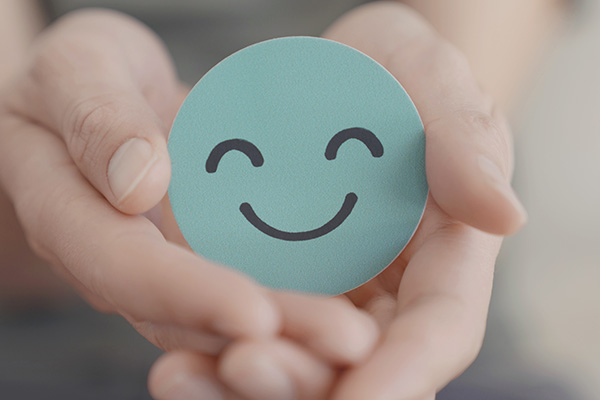
If you’ve come to that conclusion, you’re already light years ahead of someone else in the thought, “I’m still on this healing journey. I’m already working on this, but I don’t feel like I have it all together, I know all of the things, and I have my health perfect.” We’re not going to be. The fact that you even have the tools to know that you are on a path to healing puts you ahead of people who are not. It puts you in a place of empathy.
To me, the fact that you’re still healing and you still have the ups and downs is an asset to your clients because from my personal journey, when I first started healing and realized I needed to heal, I was working with a health coach specifically who was getting over one of the bigger crisis of her life. Those tools are the things that I use to this day. She’s still healing through the things she experienced, but I have grown from her experience because she could understand where I was coming from. She had the tools that I didn’t know anything about.
The limitation that we put on ourselves to say, “I’m not healed yet,” comes from this mindset of feeling like we’re not enough. I believe a little bit of humility needs to happen in this. Being on a healing journey is one of learning. If you accept that, we’re all on our learning journeys. Other people learn from other people. We’re all very social.
We gravitate to people who understand the same or similar pathways. If you are one mountain ahead or one step ahead, it can make all of the difference for someone who’s right behind you. If you think about how the service of your healing is going to help someone else, then you will do it and decide, “I am still in this healing journey. I’m empowered by that. I’m going to empower others.”
There’s the fact that my audience still has these health issues. A lot of times, people end up niching in the health issue that they had. That’s powerful because it provides this ability to empathize. When I was health coaching, I helped women in their 30s with fatigue as a woman in her 30s with fatigue. I was still dealing with it. I had seen improvement. I was healing. It gave me the ability to understand what my clients and students were going through. People chose to work with me because of it. They didn’t want that perfect health coach. People are over the highlight reel. When there’s someone who has this perfect family, passion, health, and photos, sometimes that feels unattainable for people.
It’s not real. Let’s be real about that. That’s 0.5% of their reality of life. For us to truly heal, we have to accept that we are all kinds of beings happening at the same time. Sometimes we’re at a better place; other times, we’re trying to find our way through it. We need to stop putting all of this pressure on being perfect because it doesn’t exist. It hinders growth in such a way. It’s about recognizing it.
I love what you were saying about the niche. People need that. They need to see themselves. It’s attainable. If it’s not attainable or they don’t think it’s possible, it will always be too far away. You say, “I’m only one step in front of you, so you can. I’m getting to this place.” Maybe you’re ten steps ahead of someone. They’re like, “It can work. I can feel better.” That is the thing that we have to hold onto when we see those highlight reels of people’s perfect lives because that is not real.
People are craving that real, raw, and authentic connection. Being okay with the fact that you’re not perfect and even showing those imperfections helps people because perfection is a myth. It doesn’t exist. People see that. Consumers are a lot smarter on social media than we were years ago. We can see when things are fake and when things don’t feel real.
I posted a reel because I haven’t been feeling well. My stomach has been weird. I was posting about it. I’ll talk about the engagement. If I post a normal post about random business and mindset tips, it’s like, “We could do it or deal with it.” When I talk about the crop that causes my day or my week to be challenging, the engagement is ridiculous. It’s completely different.
They feel like, “You are doing with this stuff too.” Even for me, it’s a challenge to remember. My people want to see that even though I have challenges, I still can show up. That’s part of my branding. You can have crap going on and show up still. It’s still okay if it’s not pretty. It’s embracing the reality that people want to see. They love to feel like they’re not alone. That’s what it is. They want to feel like they’re not alone.
The great thing about having a business is you can turn it on, shut it down, and go outside. You don’t have to make small talk in the office around the water cooler.
You don’t have to worry about taking people who passed out at work and things like that to the hospital.
I want to talk a little bit about alignment and following templates. We talked about this a little bit before. A lot of coaches are being told you have to do something in a certain way. They’re doing something even though maybe it doesn’t feel aligned. I would love to touch on that a little bit.
What I have found and come to understand is that everybody is experimenting. Everybody doesn’t know for sure unless they have finessed it over years or months of finding out what works for them. When we see all of these very templated situations, they have tested that or are testing it in their world for their people. Sometimes when we see that information, we think, “That is the template that works,” but it works for them for a completely different reason than it could ever work or not work for you.
It’s looking at these templates and realizing that’s theirs. Give it to them. Let them have it. Kudos to you. I love that you can only do one thing or however you want to do what it is that you’re doing. I might take pieces of that, but I need to create it so that it works around me, how I function, and where my strengths are. That’s how people are experimenting. They’re thinking, “What are my strengths? What is my audience loving about me showing up in this way?”

When we start taking templates and trying to make them our own, and they’re not based on our strengths, it’s not going to work. It’s going to create stress and misalignment. Honestly, I’ve been there myself. In the beginning, when I started my business online, I thought, “Everyone says digital marketing is the way to serve, get clients, and all of those different things. That’s the lane that works.”
I tried to force myself into being all things digital marketing. It’s not a people thing. I am a people person. If I look at my five top character strengths, social intelligence is number two. Being in a capacity to connect to help people see themselves is the thing that I do with my words. Trying to do that for someone else in digital marketing, ads and algorithms is a template that does not work for me.
I find that if you learn your definition of strengths, you identify what works for you and what aligns with your body. If you feel some hesitation, don’t ignore that. That could be an intuition saying, “We might not be in alignment with this. This may not be the best way for me to connect and grow my business.” If you’re forcing it and you’re hating it, it’s not going to work.
If you’re a little uncomfortable, there’s a difference between uncomfortability and hating to me when it comes to marketing and growing your business. If you loathe it, it will never work. If you are uncomfortable because you haven’t learned it, it will work as long as it’s aligned with what you need and want from the inside out. We have to break down this rule of all the gurus saying that doing it this way or that way is the way. It’s the way for them. It doesn’t mean it’s a way for you.
I love that you made that distinction because I see that all the time. People are like, “It’s not aligned.” There is a difference between something not being aligned and something being new. I’m a big fan of live videos. I love to get my students doing live videos because it gives them a lot of skills to learn how to talk in the situation, off the cuff, unscripted, and all of that. They will be like, “It’s not aligned.” I’m like, “It’s new. It takes time to learn.”
You can go back and look at any of my first live videos. It’s a different human. I’m a deer caught in the headlights. The reason why I can talk about anything on live video is that I’ve developed the skill. There are going to be people who don’t align. They’re not into it. They will do better in a different medium. I love that you made that distinction because people get confused.
Alignment isn’t a hammer that you can use like, “I can’t do it because it doesn’t align with me. It makes me feel a little uncomfortable.” Even if you are strong at something, you could feel that it’s not a good fit, but if you learn and continue to practice it, it will become a strength. There’s a lot about knowing yourself. As an entrepreneur, that’s the hugest thing. Along with living with chronic pain or chronic illness, you have to start learning about yourself, who you are, what foods are great for you, and what isn’t great for you, not going by a specific diet.
I say, “The entrepreneur journey and living with chronic illnesses are so much the same.” The essence of this is learning when you need to push to grow and when it’s not in a way that helps you to grow. It stifles you. That’s something that I have found for myself, making sure that I am growing in the direction I want to grow. I’m paying attention to the inklings of saying, “This is uncomfortable, but it’s going to serve you, so you need to learn it.”
I would love to move into some of the actionable stuff. For anyone in the audience who is dealing with a health issue and is either about to start a business or is in the process of starting a business, what are your top 3 to 5 practices or rituals that they could implement that could help them in this journey?
For me, I have found that leaning into mindful practice. Mindfulness is all very popular, but I feel like there’s a piece that doesn’t get talked about enough, which is the deeper aspects of mindfulness. It needs to be a daily practice, if not multiple times a day. For all of us just starting, it’s a daily practice that can take anywhere between 5 to 15 minutes a day. For me, that starts with journaling and breathwork. Breathwork is so important. Get out of your head and into your body.
I also believe in using essential oils. I’m a huge advocate for them only because I am certified in it and have seen its power on me. It helps you hack your brain. You can have a mindfulness practice of breathing before your feet hit the ground in the morning. Intentionally breathe those deep breaths, feel your body, do a body scan while you’re breathing before your feet hit the floor, and then do whatever it is you need to do.
At some point in the day, it’s so important to brain dump, journal your thoughts out, and get them out of your head because they cause clutter in making your decisions or seeing where you need to go. That’s first and foremost. When it comes to picking where you want to go as far as in gauge or what you want to do, you need to be aware of where you thrive so that you want to continue on this journey. Kendra, have you ever experienced where someone is trying all of the things but haven’t tried the things they think would work, but they’re trying everything that everyone else said would work?
I’ve been that person.
I get it. It’s like, “Let me try all of the other things.” Usually, we always gravitate back to, “This is more of what I want to do.” We feel like someone else’s way is better, or it’s working for them. It’s what we were talking about earlier. I always tell clients to write a confidence list, “Write down all of the things you have accomplished in your life personally and professionally. Look at that list and start making decisions from a place of confidence versus a place of fear.”
I love that you mentioned breathwork, too, because I’m a huge fan of breathwork. I did a facilitator training in 2021 for myself because I wanted to learn how to get out of my crazy monkey brain back into my hobby. I’ve fallen out of it a little bit. It’s a good reminder that I should pick up that ritual because I find even short amounts of breathwork so powerful.
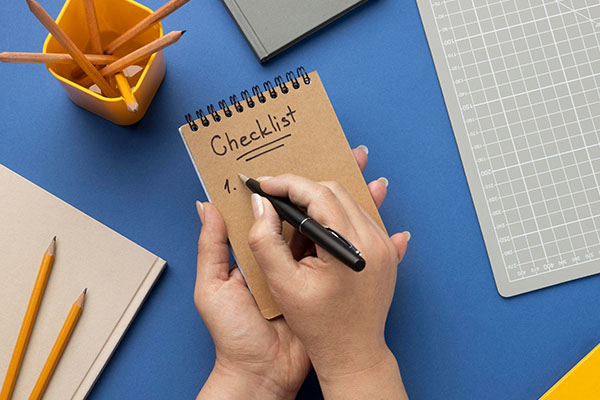
It is amazing. It’s something we do instantly, but when we make it an intention, it’s breathtaking what the shift does for you.
I’ve had some psychedelic experiences with breathwork. You can get weird with it if you want to.
For your business, it’s having a mindfulness practice and knowing what your strengths are, what you’re interested in, and what are your creative paths of how you want to be a health coach. There are so many different ways to be a health coach out there. I also think we need to work on networking, collaborating, and connecting with people. I’m a firm believer that business is not just business. It’s a very personal thing because it affects people’s lives on such deep levels. As a health coach, you’re creating people for the future. Take your time to define who you want to serve and serve from a place that feels good to you for sure.
I love that so much. If people want to stalk you online or creep you out, how can they find you?
You can find me @ThriveWithNikita. That’s my social media handle and my website. If you want to check out a podcast, I have a podcast as well where I talk to other women about living with chronic illness and chronic pain and growing a business. That’s She’s Crafted to Thrive.
Thank you so much. This has been one of my favorite conversations. It’s so powerful. It’s going to resonate with our audience. Thank you so much, Nikita, for hanging out. I appreciate it. Thank you to everyone who is reading. I love you. I love that you took time out of your day to spend some time with us. I will see you at the same time and same place where I help you become wealthy AF.
Important Links
- Nikita Williams
- She’s Crafted to Thrive
- @ThriveWithNikita – Instagram
- https://www.Facebook.com/ThriveWithNikita
About Nikita Williams
 Nikita Williams is a certified essential oils specialist and mindset business coach and the host of the podcast, She’s Crafted to Thrive. She’s been featured on Rising Tide, The Jasmine Star Show, and The Simplifiers Podcast. Nikita was diagnosed with endometriosis in 2009 and fibromyalgia in 2010. These diagnoses inspired her to use her curated experiences in photography, real estate, and community event planning to jump-start her career online first as a Digital Marketer.
Nikita Williams is a certified essential oils specialist and mindset business coach and the host of the podcast, She’s Crafted to Thrive. She’s been featured on Rising Tide, The Jasmine Star Show, and The Simplifiers Podcast. Nikita was diagnosed with endometriosis in 2009 and fibromyalgia in 2010. These diagnoses inspired her to use her curated experiences in photography, real estate, and community event planning to jump-start her career online first as a Digital Marketer.
Nikita learned that having a chronic illness did not limit her potential. In fact, it helped her to see the possibilities for herself and for her clients. Her coaching method incorporates psycho-aromatherapy, EFT, creativity & business strategy to help her clients have a complete life and business transformation. Her aim is to help all creative women—especially those who have chronic illnesses—to share their stories without feeling shame or feeling incapable and to motivate these brilliant women to use their stories as fuel so they can be successful, create the life they deserve, and most importantly, thrive.
